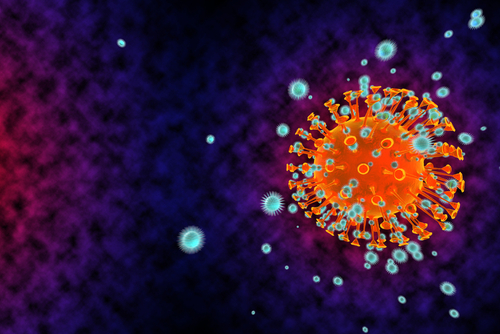
Showcasing how much more has been learned about COVID-19 since its discovery, the Department of Homeland Security Science and Technology Directorate (S&T) added an online calculator last week that estimates the natural decay of SARS-CoV-2 in the air.
SARS-CoV-2, which causes COVID-19, is believed to spread largely through airborne respiratory particles spread by breathing, talking, and coughing, which can lead to contaminated surfaces as well. S&T has researched this phenomenon with simulated survival, allowing it to determine that survival of the virus heavily depends on its environmental conditions. The virus is most stable indoors and least stable under natural sunlight.
The calculator is based on research still underway at S&T’s National Biodefense Analysis and Countermeasures Center in Maryland.
“This groundbreaking research into how COVID-19 spreads and the new interactive model from DHS S&T will have far-reaching impact,” William Bryan, DHS Senior Official performing the duties of the Under Secretary for Science & Technology. “The easily accessible tool allows officials, the medical community, and individuals to make more informed decisions to protect their own health and well-being.”
Dubbed the airborne predictive model, the tool builds on a previous S&T tool that modeled the survival of SARS-CoV-2 on non-porous surfaces indoors. The predictive model evaluates and factors in the impact of conditions such as temperature, ranging from 50 to 86 degrees Fahrenheit; humidity, ranging from 20 to 70 percent; and sunlight, charting the effects of an ultraviolet index up to 10.




